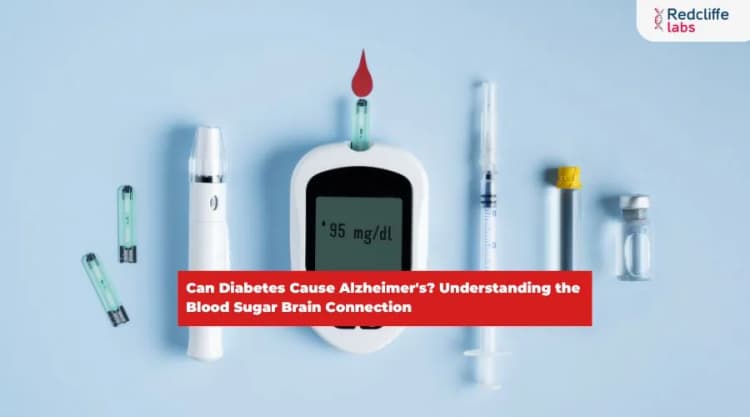Blood
Unlock special
discount on
this package
Login to Unlock 🔓
Also Known As
indirect antiglobulin test (IAT), Rh Factor or Rh Compatibility Test, antiglobulin test (AGT), direct antiglobulin test (DAT)NABL Accredited lab*

Booking Benefits Unlocked Worth FREE 799

Report Consultation

Diet Plan
*Available once your report is generated.
At Redcliffe Labs, we have a single goal: to give India its right to quality diagnostics.
Customers served
Tests Processed Everyday
Cities
Collection Centres
World Class In-house Labs
Home Collection Experts
1 Test Parameters
Indirect Coombs (ICT)
1 PARAMETER INCLUDED
1 PARAMETER INCLUDED
- Indirect Coombs (ICT)
Top Booked Health Checkup Packages
Reports in 12 hours
|Parameters 94
Reports in 12 hours
|Parameters 89
Reports in 12 hours
|Parameters 96
Reports in 12 hours
|Parameters 96
Reports in 12 hours
|Parameters 90
Helps you know your test better
Q. What is the Indirect Coombs Test?
Q. How often one should get diagnosed with the Indirect Coombs Test?
Q. Are there any risks associated with ICT Tests?
Q. What preparations are required for the test?
Verified by Medical Expert

WRITTEN BY
Komal Daryani

MEDICALLY REVIEWED BY
Dr. Mayanka Seth
Table of Content
Indirect Coombs Test Introduction
The ICT test in full form is the Indirect Coombs (ICT) Serum Test, also known as the indirect antiglobulin test (IAT), used to detect the antibodies in your blood against RBC. These antibodies, if present, cause the immune system to attack and destroy healthy RBCs, leading to various health complications. The ICT test is recommended before blood transfusion to ensure the compatibility between your blood and the donor's blood and during pregnancy to determine the risk of incompatibility between mother and fetus. Unfortunately, the presence of antibodies alone might not cause any noticeable symptoms. But if you notice signs like fatigue, weakness, shortness of breath, yellowing skin, dark urine, and pale stools, consult your doctor and take the ICT serum test. Always consult a medical professional if you have concerns about your health or need guidance regarding diagnostic tests. Choose Redcliffe Labs as your diagnostic partner to book the ICT blood test at affordable prices. With our easy-to-use application, you can book your test in just 1 minute. After booking confirmation, the phlebotomist will arrive on time at the location for sample collection.
Test Details
| Also Known As | indirect antiglobulin test (IAT), Rh Factor or Rh Compatibility Test, antiglobulin test (AGT), direct antiglobulin test (DAT) |
| Purpose | This determines Rh incompatibility between a pregnant woman & fetus & checks blood transfusion compatibility. |
| Preparation | Do not take any over-the-counter medicine without confirming with your Doctor. |
| Fasting | No Fasting Required |
| Get Reports | Within 36 hrs |
| ICT Test Cost | INR ₹499 |

Purpose of the ICT Test
The Indirect Coombs (ICT) Serum Test serves various purposes, including-
- The ICT test is done before receiving a blood transfusion to ensure compatibility between the recipient's blood and the donor's blood. The test detects the antibodies in the recipient's blood that could attack the donor's red blood cells (RBCs).
- This ICT blood test diagnoses AIHA, where the body's immune system mistakenly attacks and destroys its RBCs.
- The indirect Coombs test is recommended before and after pregnancy to determine the compatibility risk between mother and fetus.
- The doctors advise ICT tests, blood donation, organs, tissue, and bone marrow.
What does the ICT test detect?
The Indirect Coombs test detects the presence of antibodies that are attached to Red Blood Cells. These antibodies are part of your immune system's response and normally target foreign substances like bacteria or viruses.
However, the immune system can mistakenly produce IgG antibodies that target healthy RBCs in certain situations. This can cause various health issues like hemolytic transfusion reactions and autoimmune hemolytic anemia.
Preparation for the ICT test
The ICT test requires no special preparation. Here are the simple instructions you must follow before the test-
- You don't need to fast before the test.
- No medication adjustments and other requirements.
- Inform your doctor if you have any concerns or are taking any medications.
- Wear comfortable and loose clothing for the blood draw.
If you still have any doubts or concerns regarding the ICT blood test or any medical procedure, always consult your healthcare professional.
The procedure of the ICT test
The ICT test is a simple blood test, like others, that involves blood collection from the arm's vein. During the process, the phlebotomist will tie a band on the arm area to clear the veins and then clean the arm with an antiseptic solution to avoid infection. After that, he will use a sterile needle into the vein to collect the blood sample. Once the blood is drawn, the lab expert will gently remove the needle and put a bandage or cotton gauze on the puncture site to stop any bleeding. The blood sample is then sent to the laboratory for further processing. The test results will be available within 36 hours of sample collection.
What do the ICT test reports indicate?
The ICT test reports indicate the presence or absence of antibodies in the serum that can react with antigens on RBCs. Consult your test results with your doctor, as the medical professional will interpret the reports based on medical history, clinical presentation, and specific circumstances. The test reports will be available within 36 hours of sample collection. These results can be interpreted as follows-
- Negative Result- The negative result indicates the absence of antibodies. This means you are at low risk of any adverse reaction to blood transfusion.
- Positive Result- This indicates the presence of antibodies in the serum that react with antigens on RBCs. Your doctor may recommend an additional ICT test. The positive results increase the risk of causing hemolytic transfusion reactions, hemolytic disease of the newborn (HDN), or other adverse reactions.
Who should take the ICT test?
The Indirect Coombs (ICT) test is recommended for specific people, including:
- Pregnant Women
- People who have had a blood transfusion
- People who have autoimmune disorders
- People with certain medical conditions
- People suspected of having autoimmune hemolytic anemia (AIHA)
Always consult your doctor to determine if the ICT test is required for your situation. Your doctor is the right person to recommend appropriate testing based on your medical history and presenting symptoms.
What are the common symptoms related to positive ICT test results?
In case of abnormal ICT test results, the people might notice the below symptoms-
- Fever and chills
- Rapid heart rate and breathing
- Back pain, flank pain, or abdominal pain
- Chest tightness or shortness of breath
- Redness or discoloration of the urine
- Confusion or disorientation
- Fatigue and weakness
- Pale skin
- Shortness of breath
- Rapid heartbeat
- Dark urine
- Jaundice (yellowing of the skin and whites of the eyes)
ICT Test price at Redcliffe Labs
The price of the ICT Test is INR 499. The Redcliffe Labs app can book your test in just one minute. The phlebotomist will come to your place to collect the sample. Our services are highly affordable, convenient, and easy to access. With 80+ labs and 2000+ collection centers all over India, we are spreading our network quickly. We ensure accuracy, reliability, and convenience in every test. Our labs are NABL accredited and ISO certified, ensuring 100% accuracy and reliable test results. Our laboratory follows stringent quality control measures to maintain the highest standards of accuracy.
We offer various diagnostic services, allowing for comprehensive testing under one roof. In addition, we understand the importance of timely test reports, so we promise to deliver the test reports in 24 hours. With conveniently located collection centers and flexible scheduling options, we pledge to make sample collection hassle-free for all. Our friendly staff ensures a comfortable and efficient experience at every process step. Choose Redcliffe Labs for your ICT testing needs and experience the difference in quality, expertise, and patient-centered care.

ICT Test Cost in Different Cities
| City Name | Discounted Price |
| Delhi | ₹499 |
| Mumbai | ₹499 |
| Bangalore | ₹380 |
| Kolkata | ₹499 |
| Noida | ₹499 |
| Pune | ₹499 |
| Lucknow | ₹499 |
| Ahmedabad | ₹499 |
| Hyderabad | ₹499 |
| Chennai | ₹499 |
| Gurgaon | ₹499 |
| Jaipur | ₹499 |
| Faridabad | ₹499 |
| Indore | ₹499 |
| Patna | ₹499 |
ICT Test
The ICT test ensures a safe blood transfusion. The ICT Serum Test is important because it helps doctors check for certain antibodies in your blood that could harm your red blood cells. These antibodies can be harmful, especially for pregnant women and their babies. The ICT test is often done during pregnancy and also in other situations, like before a blood transfusion or if someone has a blood disorder. By discovering any harmful antibodies present, doctors can ensure that the person receiving the blood is not at risk of their immune system attacking the donated blood cells. The ICT test helps doctors identify potential risks and take steps to protect patients, especially babies, during pregnancy. So consult your doctor and take an ICT test for safe blood transfusions.
5 Simple Steps to Manage Your Health with Redcliffe Labs
Quick, Simple & Convenient; trusted care delivered to your doorstep.

Start Your Online Booking
Open the Redcliffe Labs website/app. Select the test or package and enter your details. Schedule the service for your preferred slot.

Live Tracking
Stay updated with real-time tracking for a smooth and timely home sample collection.

Sample Collection
Our certified experts ensure a smooth, hygienic, and fully compliant sample collection experience.

Doctor-Verified Smart Reports
Every report is clinically checked by expert doctors and shared with smart, actionable insights.

Your Health Journey Continues Post Reports
Consult with our expert medical team to get actionable insights to improve your health.
Nearby Labs(9)
Redcliffe Labs Noida

MC-5280
Redcliffe Collection Center
Redcliffe Collection Center
Redcliffe Collection Center
Redcliffe Collection Center
Redcliffe Collection Center
Redcliffe Collection Center
Redcliffe Collection Center
Redcliffe Collection Center
Frequently Asked Questions
When is an indirect Coombs test done during pregnancy?
When is the indirect Coombs test done?
What does a positive indirect Coombs test mean in pregnancy?
What's the difference between direct and indirect Coombs tests?
What is the purpose of an indirect Coombs test in pregnancy?
What is the cost of an ICT test?
Can I book a Indirect Coombs (ICT) Serum Test near me?
Can I book a home collection for a Indirect Coombs (ICT) Serum Test?
Health Articles & Blogs
My Health
Stay informed with our expert health articles and blogs. Explore comprehensive guides on diseases, nutrition, preventive care, and wellness tips to help you make better health decisions.
Can Exercise Really Treat Depression? What Research Says
Discover what research says about exercise and depression. Learn how physical activity may improve mood, reduce symptoms, and support mental health.

Is It Good to Eat Dried Cranberries Every Day? Benefits & Risks
Discover the health benefits and potential risks of eating dried cranberries every day, including sugar levels and portion tips.

7 Health Screenings Every Woman Above 30 Should Get Done Annually

Fat vs Muscle: Are they Different?

Can Managing High Blood Pressure Lower Uterine Fibroid Risk?

Debunking Epilepsy Myths: What Everyone Should Know

Can Diabetes Cause Alzheimer's? Understanding the Blood Sugar Brain Connection
Explore the link between diabetes and Alzheimer’s disease. Learn how high blood sugar may affect brain health, memory, and long-term cognitive function.

Pimples on Scalp: Causes, Treatments, and Prevention Tips
Explore My Health
